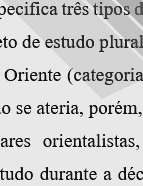

An active member of the Royal Academy of Sciences, the Lisbon Geographical Society and the Société Asiatique, this veteran of Ethiopian studies in Portugal (Cohen, “Les études éthiopiennes”, 1922, p. 137) distinguished himself in an exceptional manner for his international reputation that he gained without being linked to any kind of academic institution, a situation which goes some way to explain the fact that he left no pupils behind. He graduated with distinction in engineering from the Tancos Military School and constructed his career as a military engineer in Portugal, having made few documented journeys outside of the country. Although a train ticket confirms his attendance at the 11th International Congress of Orientalists in Paris in 1897, there are doubts as to whether he was actually present at the congress’ fourteenth edition in Algiers in 1905, the first of the events to take place outside of Europe, despite his work appearing in the meeting’s proceedings. He wrote a vast philology-oriented oeuvre, dedicating himself principally to the dissemination of ecclesiastical literature and chronicles, as well as to researching the history of Christianity, particularly in East Africa and, more specifically, Ethiopia, a country whose orthodox church, one of the oldest in the world and resulting from a number of syncretisms, constitutes a singular case study in the context of Africa. A specialist in Gǝʿǝz who also studied Sanskrit and even Old Persian later in life, Pereira worked in the spheres of critical-literary studies, editing and translation in order to introduce the public to previously unpublished manuscripts, which he always appropriately contextualized and annotated (thus revealing his archaeological and historical meticulousness) so as to give readers a better understanding of the Christian roots of European culture. As part of this exercise in contextualization, Pereira’s self-imposed rigour, particularly apparent in his translational performance, also implicates a range of discursive choices, which, functioning as marks of erudition attributing scientific weight to his studies (even though he was a man of science), at times make them illegible to anyone other than a specialist (see, for example, his decision to maintain honorific titles, units of measurement and dates in their original form, in Gǝʿǝz, with no attempt at clarification or conversion into the European system). He drew on a solid network of contacts to obtain both handwritten and photographic copies of the material that he was studying, editing or translating, which were sent to him in the post. It was through these intermediaries, sometimes named in the paratexts of his works, that he was able to access the Oriental collection of the British Museum and the Ethiopian collection of the National Library of France. He also edited texts on the history of Portuguese expansion, practising a historiography in service to truth, or to the restitution of this truth, a tradition with which his friend David Lopes had also aligned himself, and to which historians such as Cunha Rivara and Luciano Cordeiro had already been demonstrating their allegiance.
In contrast to great seventeenth-century figures like Duarte Barbosa, Tomé Pires, Fernão Lopes de Castanheda, Diogo do Couto and Gaspar Correia, who all lived for varying periods of time in Asia in service to the Portuguese state, but similarly to João de Barros, the big names of nineteenth-century Portuguese historiography often wrote about Asia from an external vantage point, which is to say from Portugal. Few followed in the footsteps of Cunha Rivara, a Portuguese intellectual who became an orientalist in Goa (Machado, “A experiência indiana”, 2009, p. 25). Nineteenth-century historians benefitted both from the legacies left by their predecessors and from a more specialized education in ‘oriental’ matters, harvesting knowledge in or from the great European centres of Oriental studies, and/or taking advantage of exchanges outside of Portugal for training, study, or research. Nonetheless, discourse about the ‘Portuguese Orient’ was not exclusively produced in the metropole.
